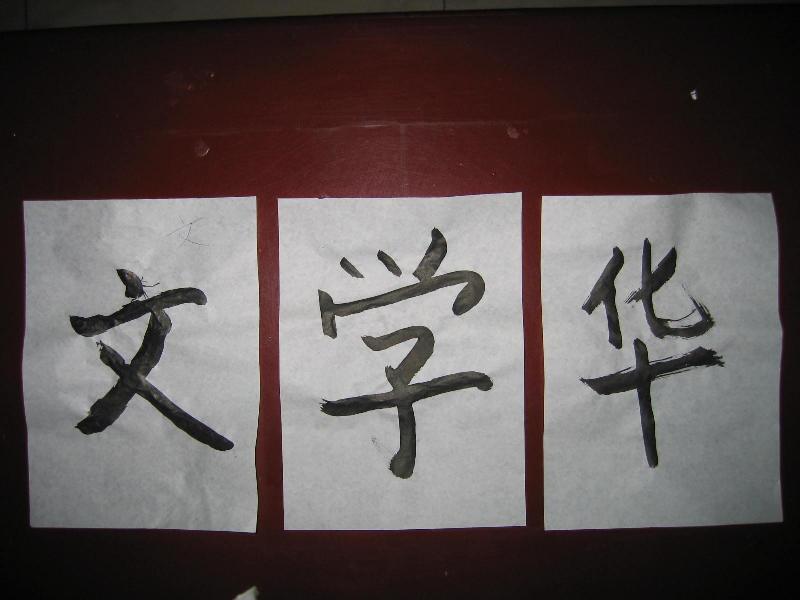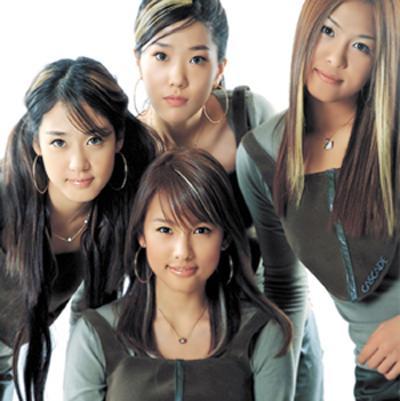| New York Times article on China by Shanghai commentator | |
|---|---|
| Dec 6, 2007 15:35 | |
 | I found this to be an exceptionally interesting article: http://www.nytimes.com/ ************ By DAVID BROOKS Published by the NY Times: December 4, 2007 Shanghai Let’s say you were born in China. You’re an only child. You have two parents and four grandparents doting on you. Sometimes they even call you a spoiled little emperor. They instill in you the legacy of Confucianism, especially the values of hierarchy and hard work. They send you off to school. You learn that it takes phenomenal feats of memorization to learn the Chinese characters. You become shaped by China’s intense human capital policies. You quickly understand what a visitor understands after dozens of conversations: that today’s China is a society obsessed with talent, and that the Chinese ruling elite recruits talent the way the N.B.A. does — rigorously, ruthless, in a completely elitist manner. As you rise in school, you see that to get into an elite university, you need to ace the exams given at the end of your senior year. Chinese students have been taking exams like this for more than 1,000 years. The exams don’t reward all mental skills. They reward the ability to work hard and memorize things. Your adolescence is oriented around those exams — the cram seminars, the hours of preparation. Roughly nine million students take the tests each year. The top 1 percent will go to the elite universities. Some of the others will go to second-tier schools, at best. These unfortunates will find that, while their career prospects aren’t permanently foreclosed, the odds of great success are diminished. Suicide rates at these schools are high, as students come to feel they have failed their parents. |
| Dec 6, 2007 15:36 | |
 | continued....... But you succeed. You ace the exams and get into Peking University. You treat your professors like gods and know that if you earn good grades you can join the Communist Party. Westerners think the Communist Party still has something to do with political ideology. You know there is no political philosophy in China except prosperity. The Communist Party is basically a gigantic Skull and Bones. It is one of the social networks its members use to build wealth together. You are truly a golden child, because you succeed in university as well. You have a number of opportunities. You could get a job at an American multinational, learn capitalist skills and then come back and become an entrepreneur. But you decide to enter government service, which is less risky and gives you chances to get rich (under the table) and serve the nation. In one sense, your choice doesn’t matter. Whether you are in business or government, you will be members of the same corpocracy. In the West, there are tensions between government and business elites. In China, these elites are part of the same social web, cooperating for mutual enrichment. Your life is governed by the rules of the corpocracy. Teamwork is highly valued. There are no real ideological rivalries, but different social networks compete for power and wealth. And the system does reward talent. The wonderfully named Organization Department selects people who have proven their administrative competence. You work hard. You help administer provinces. You serve as an executive at state-owned enterprises in steel and communications. You rise quickly. When you talk to Americans, you find that they have all these weird notions about Chinese communism. You try to tell them that China isn’t a communist country anymore. It’s got a different system: meritocratic paternalism. You joke: Imagine the Ivy League taking over the shell of the Communist Party and deciding not to change the name. Imagine the Harvard Alumni Association with an army. |
| Dec 6, 2007 15:36 | |
 | continued......... This is a government of talents, you tell your American friends. It rules society the way a wise father rules the family. There is some consultation with citizens, but mostly members of the guardian class decide for themselves what will serve the greater good. The meritocratic corpocracy absorbs rival power bases. Once it seemed that economic growth would create an independent middle class, but now it is clear that the affluent parts of society have been assimilated into the state/enterprise establishment. Once there were students lobbying for democracy, but now they are content with economic freedom and opportunity. The corpocracy doesn’t stand still. Its members are quick to admit China’s weaknesses and quick to embrace modernizing reforms (so long as the reforms never challenge the political order). Most of all, you believe, educated paternalism has delivered the goods. China is booming. Hundreds of millions rise out of poverty. There are malls in Shanghai richer than any American counterpart. Office towers shoot up, and the Audis clog the roads. You feel pride in what the corpocracy has achieved and now expect it to lead China’s next stage of modernization — the transition from a manufacturing economy to a service economy. But in the back of your mind you wonder: Perhaps it’s simply impossible for a top-down memorization-based elite to organize a flexible, innovative information economy, no matter how brilliant its members are. That’s a thought you don’t like to dwell on in the middle of the night. |
| Dec 6, 2007 16:29 | |
 | I think this article is a very accurate description of what is taking place here. |
| Dec 6, 2007 20:19 | |
 | Long and insightful article. I met one Chinese guy who is studying at Peking University while he was working as an intern at ICBC . Good for him! ^_^ He acted as my interpreter at the bank after I found out that I have two fake 100 yuan bills in my possession. Really nice guy. |
| Dec 6, 2007 23:37 | |
 | It's always been this way, though. It's not hard, though, to find a job if you have the good connections to someone who is either in the military or one of their family members. I know a guy who has an aunt in the military (not part of the army, hehe) and he said if I ever needed a job in China, he could set something up for me! I think networks are important in the U.S. as well, but just not emphasized as much. I guess in the U.S. they are doing you a favor, but in East Asia, it is an obligation. - moondollars |
| Dec 9, 2007 20:37 | |
 | Yes, very interesting article Griz. I wonder if you would be allowed to post here in these forums if you were a Communist Party member? Anyone know? |
| Dec 11, 2007 04:05 | |
 | who would know if you were a member or not. that is the beauty of the Internet.........right. It gives anyone the opportunity to voice their feelings, opinions etc with some anonymity. |
| Dec 11, 2007 13:23 | |
 | >>who would know if you were a member or not. that is the beauty of the Internet.........right. It gives anyone the opportunity to voice their feelings, opinions etc with some anonymity.<< You've raised some interesting points. Firstly, Forum members wouldn't know you were a Party member if you didn't tell them or didn't give out obvious hints. Secondly, the general public has a false sense of security when it comes to privacy and anonymity on the internet. Using 'handles' or screen names when posting to forums does not cover up or hide your identity. Your computer can be traced quite easily by authorities if they wish to discover where a post originated from. They won't necessarily have your particular fingerprint as the author, but they would know the location of the computer that was used to make the post. It would be enlightening to learn what the official and unofficial policy is of the Communist Party with respect to internet use of its members. For example what types of sites they can and cannot post to. |
| Dec 11, 2007 16:52 | |
 | Canadaguy, You may be assuming that being a member of the CCP is the same as being a Party member in the West. Joining is by invitation only. A friend of mine is a member. It certainly helps him with his business in regards to his network. My understanding is that there are few restrictions ,if any on forum sites. When you sign in to an internet site you have to register you ID card number so authorities would know who was who anyway. Dodger. |
| Dec 11, 2007 21:25 | |
 | Thank you, Griz, for posting such an interesting article! Griz326, this post reminds me of my post "How to bridge China's top-notch talents gap? " (http://community.travelchinaguide.com/forum2.asp?pp=1&i=37890&keyword=Leonardo#forum) As I said in the post, >>under the present educational system, we, Chinese students study for examination. At school, we are told to do what our teachers assigned us. At home, our parents arranged everything for us, from the childhood,they have set a blueprint for us: go to college and find a decent job. << You disagree with me. I wonder what is your opinion on the article you have quoted, Griz326. This article reflects the similar subject. You didn't air your views. |
Page 1 of 2 < Previous Next > Page:
Post a Reply to: New York Times article on China by Shanghai commentator












 Copyright © 1998-2026 All rights reserved.
Copyright © 1998-2026 All rights reserved.